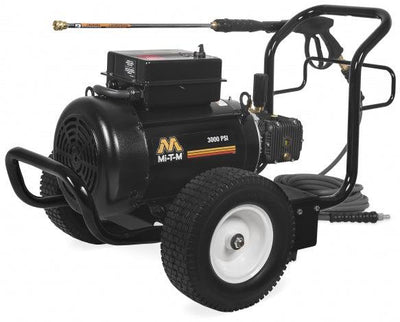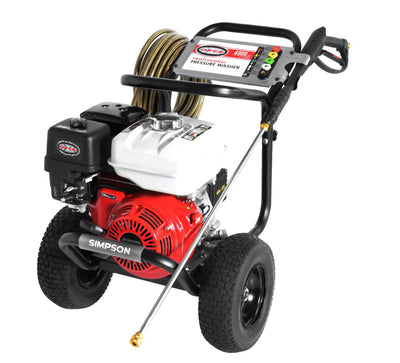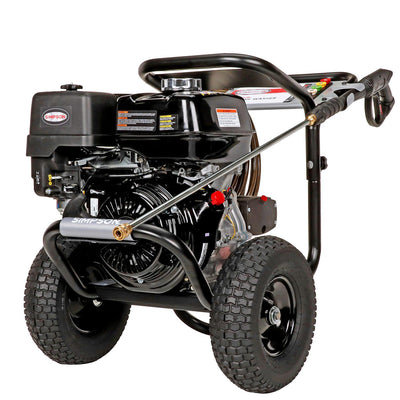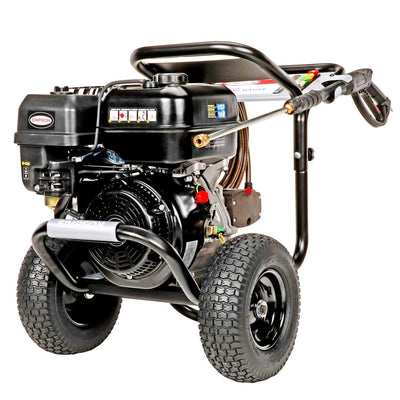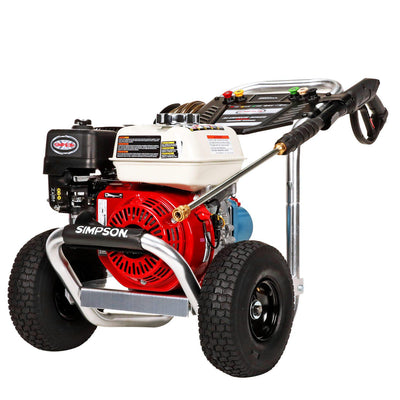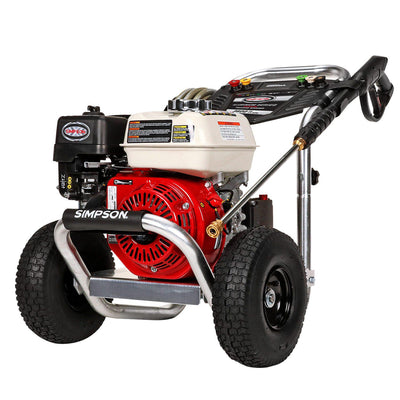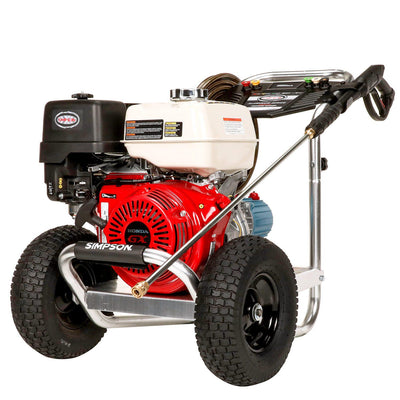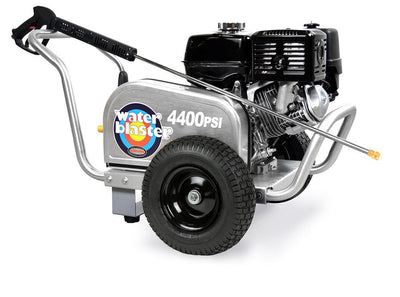Pressure Washer Buying Guide
Whether you are a homeowner, contractor, or manufacturer, a pressure washer is a great tool to have to clean and prep surfaces. In order to maximize the benefits of a pressure washer, there are five important aspects to consider when selecting the right one for you. One is the pressure that it will provide; two is whether you select a hot or cold pressure washer; three is if you want chemical injection and if so, high or low pressure chemical injection; four is the gallons-per-minute (GPM) of a pressure washer; five encompasses the engine type and feature set of each particular pressure washer. This guide will discuss each of these important items to consider when buying a pressure washer.
Factor 1 – The Pressure Output of Your Pressure Washer
Pressure washers come in a variety of pressures ranging from 1000 psi to 6000 psi (or more in some cases). Pressure will be one key factor in determining what you can effectively remove from a surface. To determine what pressure you may need, review the chart below of typical pressures that are used to clean different surfaces effectively. This will be the first step to ensuring you buy the best pressure washer for your needs.
| Surface | Pressure Required |
| Household items (grills, furniture decks) | 1500 – 2500 psi |
| Decks, docks, fences (wood structures) | 2500 psi |
| Boats | 3000 psi |
| Driveways | 3000 PSI |
| Paint- & graffiti-stripping heavily soiled equipment | 4000 PSI |
Factor 2 – Hot or Cold Pressure Washer
The second factor to consider is whether you will be best suited to purchase a hot or cold pressure washer. Typically, a cold water pressure washer will be sufficient. However, if your product surface has grease or oily type contaminants, then cold water will not effectively wash away those more stubborn contaminants. So for the second factor, if their will be grease or oil on your product surface, consider including a hot water pressure washer.
Factor 3 – Chemical Injection
A third important factor to consider when buying a pressure washer is whether you will need chemical injection and if so, whether you will need high or low pressure chemical injection. The difference between the two is that high pressure chemical injection incorporates chemicals into the pressure washer stream prior to the pump, resulting in the chemicals being released at the pressure that your pressure washer produces. A low pressure chemical injection option injects chemicals upstream of the power washer pump and requires the pressure washer to be switched to a different setting, usually when applying chemicals. In general, when applying chemicals, you do not need high pressure chemical injection. One reason for deciding to use high pressure chemical injection is if you do not want to have to switch the pressure washer to a different setting to use chemicals when cleaning. The potential downside of a high pressure chemical injector is that it can cause premature wear on your pump due to chemicals wearing at the internals of the pressure washer.
Factor 4- The Gallons-per-minute of Your Pressure Washer
The fourth important factor to consider when selecting a pressure washer is how many gallons-per-minute it will deliver. As previously mentioned, the pressure of a pressure washer multiplied by its GPM provides the cleaning unit capability of a pressure washer – a fancy term for how fast a pressure washer can clean surfaces. The higher the GPM and higher the pressure, the more cleaning it can do in a shorter period of time. The higher GPM a unit has, the faster it will wash away contaminant, while PSI will determine what difficulty of contaminants you can remove. So in general, you want to have a pressure washer with the proper psi for the surfaces you intend to clean and with the highest GPM for the pressure you need. This will provide you with the ability to get your work done as fast as possible.
Factor 5 – Belt vs Direct Drive Pressure Washers (& more!)
The final factor to consider when buying a pressure washer is a variety of features that may or may not be available for a particular pressure washer you want to purchase. First, consider whether your pressure washer is belt driven or direct drive. While we have a whole article on the differences here, in general, a belt drive pressure washer will be best for frequent heavy use (20 hours or more per week) while a direct drive unit is most common for occasional and less frequent use (it’s also less expensive!).
Additionally, you will want to see if the pressure washer you are considering can adjust the unit’s operating pressure. This is an important feature, especially if you want a higher-psi washer. Some surfaces will not be safe to wash at a higher pressure, so an adjustable pressure will allow you to safely wash more sensitive and tough-to-clean surfaces.
The last factor to consider when evaluating a pressure washer is the engine that the pressure washer comes with. Pressure washer engines will vary in warranty, but generally, a Honda engine will carry the best warranty. So if you will need to rely on your pressure washer for frequent use, then a Honda engine will be ideal.
Closing Thoughts on Factors to Consider When Buying A Pressure Washer
When buying a pressure washer, remember that it will be important to choose a washer with a high enough pressure for the work you will do (but not too high!). The higher the GPM you choose, the faster you will clean a given area. If there is grease or oil on a surface, consider a hot water power washer. Chemical injection is usually done with a low pressure option. And for heavy use, consider a Honda engine with a belt drive design.
By considering each of the factors, you will be able to choose a pressure washer that is best for your work.
The post Pressure Washer Buying Guide appeared first on Pittsburgh Spray Equipment Company.

